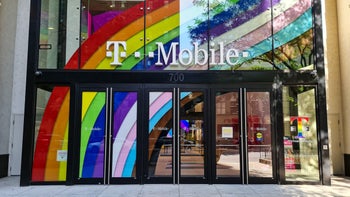Meta slammed with an $840 million fine by the European Commission

Okay, that's heavy: the European Commission has fined Meta €797.72 million (that's approximately $840 million) for antitrust violations related to its integration of Facebook Marketplace with the main Facebook social network.
The Commission stated that Meta unfairly tied its classified ads service, Facebook Marketplace, to its dominant social media platform, giving it an advantage over competitors and imposing unfair terms on rival online classifieds services, Reuters reports.
"The European Commission has fined Meta […] for breaching EU antitrust rules by tying its online classified ads service Facebook Marketplace to its personal social network Facebook and by imposing unfair trading conditions on other online classified ads service providers", the European Commission said.
Meta has already announced plans to appeal the decision but has agreed to comply with the ruling in the interim. The company stated it would work promptly and cooperatively to implement changes addressing the EU’s concerns.
The essence of the EU's argument is that Meta’s practice of bundling Facebook with Marketplace amounts to an illegal "tying" of services, making it harder for other online classified ad platforms to compete.
However, Meta countered that users are not forced to engage with Marketplace, and many Facebook users choose not to use it. The company also argued that the Commission’s claims lacked concrete evidence of harm to competitors, suggesting that the decision was based more on assumptions than on demonstrable market impact.
Earlier this year, insiders indicated that Meta would soon face its first EU antitrust fine for these practices. Although fines for antitrust violations in the EU can reach up to 10% of a company’s global revenue – potentially as high as $13.4 billion for Meta – the actual penalties are typically much lower.
Meta had previously attempted to resolve the EU’s concerns by proposing changes to limit its use of competitors' advertising data for Facebook Marketplace.
While a similar concession was accepted by the UK competition regulator, the European Commission rejected the offer, signaling its stricter stance. In a statement, Meta’s spokesperson reiterated the company’s view that the allegations were unfounded, emphasizing that its product innovations aim to benefit consumers and promote competition. The company added that it continues to collaborate with regulatory bodies to address the issues raised.
It's not easy being Meta these days. If you want to learn more about Zuck's company's latest legal adventures, check this out:
The Commission stated that Meta unfairly tied its classified ads service, Facebook Marketplace, to its dominant social media platform, giving it an advantage over competitors and imposing unfair terms on rival online classifieds services, Reuters reports.
Meta has already announced plans to appeal the decision but has agreed to comply with the ruling in the interim. The company stated it would work promptly and cooperatively to implement changes addressing the EU’s concerns.
The legal action follows a lengthy investigation that began in June 2021 and escalated in December 2022, when the European Commission formally accused Meta of leveraging its market dominance to promote Marketplace unfairly. Facebook launched Marketplace in 2016, and it quickly expanded into various European countries, raising questions about its impact on the region's competitive landscape.
The essence of the EU's argument is that Meta’s practice of bundling Facebook with Marketplace amounts to an illegal "tying" of services, making it harder for other online classified ad platforms to compete.
However, Meta countered that users are not forced to engage with Marketplace, and many Facebook users choose not to use it. The company also argued that the Commission’s claims lacked concrete evidence of harm to competitors, suggesting that the decision was based more on assumptions than on demonstrable market impact.
Earlier this year, insiders indicated that Meta would soon face its first EU antitrust fine for these practices. Although fines for antitrust violations in the EU can reach up to 10% of a company’s global revenue – potentially as high as $13.4 billion for Meta – the actual penalties are typically much lower.
While a similar concession was accepted by the UK competition regulator, the European Commission rejected the offer, signaling its stricter stance. In a statement, Meta’s spokesperson reiterated the company’s view that the allegations were unfounded, emphasizing that its product innovations aim to benefit consumers and promote competition. The company added that it continues to collaborate with regulatory bodies to address the issues raised.
It's not easy being Meta these days. If you want to learn more about Zuck's company's latest legal adventures, check this out:













Things that are NOT allowed: